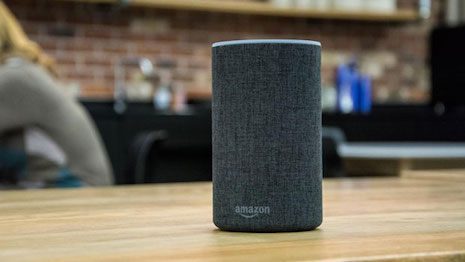NEW YORK - The notion that marketers can predict what consumers will or will not adopt is an immense misstep that can damage a brand, which has been proven by luxury’s past habits.
According to a Forrester analyst at its 2018 Consumer Marketing Forum on April 5, the only thing brands can forecast for certain about consumer habits is that they are unpredictable. Marketers have a variety of misconceptions about consumer habits that can greatly damage their strategies in the long run, including the idea that “consumers will never do that.”
"The nuances of our data show that even though people may rely on certain devices how we use technology is really dependent on what motivates us," said Gina Fleming, manager of data science at Forrester. "How people use technology is driven by individual needs."
Marketing misconceptions
During the session “Technology Habits Of The Fickle Consumer,” the analyst explained that originally when the Internet first came on the scene, many retailers and marketers believed that consumers would never purchase something online due to security fears.
 Neiman Marcus is looking to omnichannel to boost sales. Image credit: Neiman Marcus
Neiman Marcus is looking to omnichannel to boost sales. Image credit: Neiman Marcus
Back then, Forrester surveyed shoppers and 75 percent of them claimed to be uncomfortable purchasing online because of security reasons.
Today, 74 percent of consumers have overcome their ecommerce security fears, with an average of $789 spent online in three months.
Luxury brands were the most notable who held back on online shopping, with even many today not having an ecommerce presence, previously believing this is not where their customers would purchase.
But marketers can never predict what consumers will or will not embrace, whether they are affluent or not.
 Amazon Echo helps consumers shop via voice technology
Amazon Echo helps consumers shop via voice technology
Many times brands will believe that their customers will not use certain technology for a variety of reasons such as it is too invasive to privacy or it is unsafe. However, time has shown that if the technology is useful enough to a consumers’ life, they will overcome these fears.
Digital behaviors
Another common misconception is that consumers converge into one digital skillset.
While a majority of consumers will rely on certain devices, it really depends on what influences the user.
Individuals behave differently with technology based on their personal needs.
For instance, with voice assistants, some consumers use these to keep track of their shopping lists while others will use it to control other devices in their homes.
There is no black-and-white model of how consumers use technology, and it will always be evolving to fit their needs.
For instance, while virtual reality is not completely integrated into everyday life, it could possibly be in the future.
Virtual reality in the retail and ecommerce space is set to generate around $1.8 billion in 2022, according to data from ABI Research.
The report looked at the myriad ways that virtual reality has played a part in improving the retail experience and giving brands and retailers advanced tools to lure in more customers. The applications of VR are already readily apparent in the worlds of real estate, fashion and more (see more).
However, there is no way to know for sure.
Men and women also continue to exhibit staggering differences in shopping behaviors, with recent findings proving men’s aversion to online shopping.
According to a report from First Insight, 40 percent of women frequently shop on mobile devices but only 22 percent of men say they do. Luxury retailers that cater to men should focus on creating an effective in-store strategy, since this is where they prefer to shop (see more).
"What these examples show is that the consumer technology path is not always a straight one and consumer behavior is never black and white," Ms. Fleming said. "We can never say with confidence that consumers will never do that."
{"ct":"m2KD59C8sZ0eiDDmpWZKcUaoHsCsP1E3K7zgyeCwknOBZssI6IeG0VKPDDno9X3L\/Vua+5Wl88MVDt6F+3W4IXqpUuL5lRhUOI5vF2rTjKMaZTrmoNzcNG96l661DQIFA0MTM4vJ6jwC7b5dV6rZZlzG1SGy8IzlSY0qnuU1\/pQi5ep8tp+VYzi4w5KJyXYrmOu14yAj7ArGZjRdpaPVg39Rbh5Tkpw8\/pmcvaVxQ1b6SVjJPIzLxZfxjRx4UFhm2DlbDwYgDQTy1z5am5MkVL573WXsR6ZAYXnTtT94JRpNr6wvB8eOXkR8s2Py1ObJhDad8pGYbnda7iwkj8gm7C7t8\/j+5mQSsPYJ7nc1wocF8O0ZcoZAT49i\/NJCESRnTcM3Eyt23hM2hoojX3fRylpiIrKvvCYjjhbG50VGzjgva0gh4sqJn9IaVmZlLGVArvctcN4tTqFyEmWkDGQmAFtok1UEJNmnfdzp50Y4b8e\/Bn4AEboFJkaxmxKVX3cgdt1aD7KZmDYDPbwKXU57ZeojfrdiZMHx8\/MB7NBflyxQRHd+SFxcj4hobfVP0yYezzBmMBco\/0AcB4KVWshrcscxjee3yOrPmnEIn6BG4i5zTcTyffTMT\/fMC9uk5Trjz9FX+Y+nerappZqvSdfnAJzTZodFC5XxfC9onP4TnHsUgTkdnSX9i6PGG33AF6ic360U96ecnO3wlLlz5BHQIZw0ckNhIrpqrPCVO9iQSCuBYzvB9u\/UwMvhQTadxTsoTXN+vZP4coXWn0L+gOYPGL3CmHKlqmE2ZFAQVpSP43\/L8X2dh9ND7VyF7yMP8FQfUfxqXtveHRvUgKlqhOi9yxgrbSqBB4heJ5VQnUpTK6NHzbwyj7q2IzcmSyph9c3Xe76xTtfZhumx5Tonr+VabLETXYzsDqew0JspJFAPXoBdekJjYZbN6coi4HwY1bgVOuH6\/N3u+PkoXdfffSMqlQNF44sdP\/o0LgZF9vjt7kiFAl8Lj5TzcXukkZFLfTsvwP8jcdY7rDtXf0TgaeCU0uIUdZwGf95eq8i1gavLJGPruX5wS0fdB1TMB0scmHeMBiaOZ\/YU3wWUf4\/A+rrU8W3kSX1iCbllcRVMueoA0tf+Fs5mFw7V9TeauOMAyp\/fWno3FsXroM3uZgOequPDIwRmxfE+N9kAUtjJk1tfMhisy6TQFAU\/1xupmAL+B4mU8RJG\/\/aJVqANuotT1hgP48DW9r27P1rW6WyuvvbC8zsVXHbxeor9xdLBnRPs8fAR36hhWlIg6kQpYMC7Hf9cCvSf5Lh2Ej3jFd5oVJq3X0obauaV7t\/lMVCeN3LqBiu75Cg\/5VyjhoFhpZtj6nZtgxxRv6EjGpuX9beyf1nMF\/xKIAn70on17e9nqF+73IfJPUD7IChlMGOIz1Z+\/yEV+i7oPqe0eYQcPdPE46VtBsg7UX\/DObViuxkKeTTFLFAXsOYynpypdkbP8UGRilVCQTXEi95a4tMKOFIvrPGbPTff0NxiK2FddsDDDlWbBxmrCcP+NzUbAR44s\/wDnMPrl+11EBHImV0UMsYd9j8TmtC9bGqNwlVuxituQH0IxZRPD13\/wMkcJfN9WH+RLAof1cSBbnfxXvDLI3QsHKPsTq3ROvkPyOBIUcF1lg9svvz9UuXjWxTaL4G96ZYZZ7\/DTezJJkCADah+99752MUAWzgGSzAj38zi7AAJWbc7wfJYDyqZgr8+G5zn9JoHGL+ZwrbxQ5vbRRyUkkGmtqcuGkEwEdBbmd82D5BnMF+wuulErux28E8IlDPVu6hY3CM6AuNjuxOd7aGvYjHKkbieilNltLFzqDYsNkhhHNSVUhRcKbRJ6v1JiG725\/noZQRpXad8udC5pJtdymZi3LwL7xl\/DWq+BGl0h9CzH442Fh2MYLQtMXKtctGD9LOB0fQtFmx9vdkRQErq5qRIOqgXFhgaEwSNyU7j5m\/LO+M4uNT120aa8GMjjKZ3SxHGOYn+PfPpJEEGqIyqzkmy+9OtYzVoB1Rl9tc0xC0zS+TK4TDQYVMYMaRq6DWrpUthp5Mf\/bsHrqE3yn2IkxNJFWeS2h5UaHMtlmSfTTuWGvF3K4oX0noxaVDgHJDEVSC\/jjfRgRc35fTSDl4jrnCUEYa75TvS3Xbbm+gCy6s5qia6W9cR23cYuM7KWSm4PoJUkjmNoGj2zQ0c1tr2yoaQGKGBakHQN4Q6d53RILtFXw7UHw6y2X+wkrdKr2K8Zu80V5xkZQ2MHQn70awg68R1q4ZLsvY5xZSZowdIm8L3yTBUrY5ttz4OLvWJ9CNkgTTYNieadbqUqudx8Z9QBnrcrQBMQhtJA73aKznniQroh5OE7Bny6JKhABiWtmBZC2GA9U8YtqfoSkVtM+wXOjwqBeYjwKXYX\/40apk0zH5rMIrKgjijIboJ7Yw+Vc0IHZHbyjx6kbk6UqZR\/3aqdBwSEe9jMXyfw3tWx+sglyS1I\/krEK1lcj5Ekln481DiIp6jiQAiKmxTCAqgMj+we9QGO6Wf4oJnEhAvyEnjuWrTtrDdjJymKBri3KX2zPsisFewI3jJo6EhgN37zUAv82Cm2N9yh9Eyum+hyaIXszlnqRqLOCe6qNKgwPkN10O+Ckv5RNQ4n1p7uY1vQ2EKO+avXC3r7zyjJtZRw1FnJ3Z1vhaaKJLrORSBnzned2LKS5DqCdG7vABZ19wyg2wjKeUDlBm2zq\/++pCMfyg7EFjaoC0JfPUdT0BCTVBUYS2mlkQui7\/F8lTMJDH0\/6kj70Yqct6+GA9obC+I6U3F0760G6M2HUYBt0kldACIZvKE27yKnKZbN\/xXPG4T5Cccn4KRQfNA3LaSXa6dxpnVTjb60AX72lL\/K7ZyiTAhmQ3n0lEMOJxpbQhQEZWY36muzrK8eniYgSEpv1QSYIPei1\/l0bAbdg11ulLdIG+LE1UmJJRPpKxnJYRSiPKAmwScDW2aFeZSNCsw7tzGgVumO3gcoD8MuBdjEw3I8AArCVPGk1yVpny\/3+3lyBgtj7jZ+Id29fuGoUBkBdytNv3BhD\/j5oFHLq2w6IYZjmJorq0WX+y7drNAVHmw1Z5Xwgybfg287tGO\/BLSVs3gY6CWRecVPnmfrJz4GGJeQEcHKWCeaaLKZEqImpeDt1LCucBaLC4pVu56Cn+o\/lRwNfIPePppNEA8L7Mj7t56g6bBxjeHAk1lAGmbQYD3YjTDRKnhgZNyUA1ali04Cl84\/UD8ORScJS4wfNnDNE4EGNG84+rPgAZPOt216R1IffULvvhBGZrp2YRYLlXg355Czj+0GuKgX04MI0VeHRe0JnPPQiplZwKAYJp+LcSTwGObzq7YFNeAxIL+c9nB2HJxDWPvljqUoOwJn5sYQwUkuFUiMgx+sis+AC7PW33Oicx93Tke\/ywpMEft200Bn3mHr\/aQSeQiQQ5aTBU5jfH\/b3tjmmowfcnjPqgzpJgg9hQLDTt43z3YU4Gf3kKFK6YAHHJfoNOcp4JkAyV5Xb+LvErxGXii4NjDcbfZ65tIYz9TkvCOdMp+T853sqcfk\/7U6sE\/Fe0IawiGnMNey7NaMDEhR99HliuMWiV5v7ZvDO\/5rhHl7Ecm6gKKOf6Vx0kU\/sbhlTnswDhhv9lHAWRHpwaESZRj5Pw74Dj3t24HLNvzMFQiW8DRSZckzx0IRS8vz41kbbDL9u43d+zmmMGtf+HyXRo\/dDVxVeEgFzsrjN15KOtGhu36Q4awA4F7MTllJh4KDCeYaIZq9tUWNmIcWUW2kQNFDu1kNZiB6P+Ji96yGsTeyCCbhegMn9vdFcsooyPkslcpWbbaqoik+VnFrM6RG4XjxIKCfHaL66TsrtVpZw3H2wUmVAFBLteVsmf4cQD0XKg+VFvxhduCtPszJsjyzYqNDX7yHc3Mp0p3UAX2IbDxLYgJA9J2jGZpEGSDnTQvEtFlgu+zpGmre7isHtY7nTv6SKEupSgCAd1QUFxMDhIlv6H\/kwWdHKcD+8tCxlDuiHr\/zjgtBy2uJI8mEu338H+k7vuFKSGRPPsiCZ21v5hM1sB\/uwyD7qOQBC+jFkqOrrUgitGft\/vC0asXQpzLJLH\/UijVyjEhnSIYRlyhIW1rcN8jnFRSAuq32JFPEJqA4k7rscbfhpcwPsKz8hyPElVQBRujqOj5pp3imjz3017scyC8hL2THxQohieEvYDx\/5ueC9NN3uwKc1OAczKUQeyTqE5i2Uh2SjBfwKWKtbDtjCTXi93S5dBCWYlm8Z+6NWFTvW1L9cpRYicmkmtpFrbVglsJzH66953ZqmqMUGLx2ryWCQNhrAAYrD7WzBGHllw\/VbPcatTmAmHe6dI2YYFxWX3\/+zahUWHPh8c35VaafXH6wWeDVrZQjigzxTYPR7WA5fRRgsQ1+YPgcIuMRqQwSy2zy9nSOtvglH321iyVC4EQ3prRk69vIdrbPXkKFN1adyLLgoCTvzog2okuAI36Qq4y9vyggzpCP93wTP0WePayn9kUHzTvF81V36Q32\/aEihoMN9bWmeUeonL4e0m30rLmts0d4IOjnwXbOd\/cLwCcApXac5PVJbWKcIWMX0v\/k\/\/oeG3F5mFLYBlnZLbmm1Ydp5+ptRsRw2g9SWZb+OT2SGEwG1ynixwS2s7Y8pXbN1lVRO1a537DhN3sYoozHRpSX7XFGB2hJ\/dJHfU8kmA9EnCwB6wEOh7VT81br0U8BGF6Mm5V0DVvLdNrYVv98F99Ce5XPk8edZoLGCjCuVNYmJrQqRFxCYy3IAbHp5sxaS2oir\/3l0jUz2SKb9DQ\/yV9I6sLXvwI1yErlkaapLX2I3QPu4nlAz8FQPQ96\/nBguTNmeFs+vrNrdcTdwTvm22Hr8DB9\/TzTPGmNeOClSnXZHD9KdznpsmtiebxctX7mHY4VEqUT\/LeFNJPJgndP\/wgh8josQ4vR7K7SrQwl95dWe1vFEsIJ6+TpNsh5x3YfGkpSmAAHtt\/lqILFNqqCeVJD5PCtdrjG1OSzJDAZUC7jQRreQPzSI2ULiBvwHnstJf1uYCTRXCGJF0IqVXxiN4zo0eEVh7s8XJHF7Ekf14fApOPVF13RZTel0Ro6\/j6I\/+kHsrtWuURtQaRhX1x6YT9kQ40r4bMMVjRC+ZSmCaY3vGNY6wr8Znu8UDjByp8eZsHjfmC3GBlphPIv2DvBPE2KYXtW1uYL5UO4+CJlsk7uKthc7bvMxXJ+irkCIkdbRETe8qJ8cSTrSIxNBh+Z6ts0YRPGhhFw2hmueaazmj4i4Citzf3p2+yR1vscF86l2hTGIxhDLwp8pIia2oHJjwP7CYU0+f+6dbcRuEkF5\/oBdM1Gwf+U121kZDICg2Z6VTfOxrJXJvvpsJOZqj0VIHK\/qH1BNyhO\/l89i78A03+8eKHVmOQDVeEy6UJglg0vRYjEu\/ujXgoTU7Hppnz91DZ2GGQpUyaR\/hJ\/nMXsHVWRvha6RNZyP8qt1TzA9f09R7RkHle6YwQlqqgbUYOGEddCHmCKywy2BY8dlsNOwQnzMtjFcRpcQUcNEcoBtVRgV42kd3UQI5RslKw28yyYcDEFlEaP8KOEZWQAc\/VmiLGT7OwU78Z4PVDrRd+QL\/RUhmyJ3d0N3o9x\/919TUAZ+jQtrtlcQ95YfqLHM0oKniqRoCJIxo3lKjaxLRKh+tKhVVODdhKt37aB9ziDiN9TjykwgHmqG7msxbSNz68r2ErIuIN6RiK2RRkdXfkkw4b4Mu0oCUgkLAN+e7AvJKVhFyxE4zhy5bQWhsC9uzFjaXuo8ilIsBky4JxQMCAFUCsl5c0oCI1T3r8ASbX9CW42vOtebQpPU4c+HRHQoIYbWrruKkk2kmn\/HNrr4AgkPezX0iyXO0eFdqpXg3TzWfujmt572\/S++5uxBt2DJRA3F3HjZjwRlRFC8Pz4GRHnDZLZ5z3bI0Ju3xRmGSfntsLd07v5PXBCeuadEuo0FyxLPdu7wjoMi0XjrSCWyx1wHbmleRRzmcyHamu\/F7fmmSustnPPj\/cYjo6+3PXb4egzSt3ITkczBJ7DYGeKhQ2kMMOdCpTcRBa8rOrrGN0Ev95b9iy+lwFu++3bG\/S\/Fj85G4Nul1OwqNnYm1K5QbR1n8TEDrcBbe1pc\/rX6N1hZbJN0+GA8ZqBgrIWpBn37PrcDp\/0JLCYCp+y6Sb0nLWFoVdKaGwkwpsM1487bD3mfSow8lz3KH4Zedw2TKPr4D2me5JOWAfCDU+QwKjSj7ZdeKEv62gvKYnwLvGPG4H6qFcJGchiTmYokcJBxS\/DFER7HthreDNI3jvc8oTcfuKNzQY0jS8GwQS6w+UDqHvlVyAOgAiEXWfAcTE7gIct6AFYENsawaAM0Sr+BWUSs+Rrdj6W7DMV6rFUWmlIZnpSL4Tu4ZH1BCuvBgbJvU86kJZ1ezXTafTeDPkIxIuMHv0D7bk02JTBvXA+Nut7VMUf9rQscuE7CXPXdEDjkRhXdPVgz5bXFJeIR\/PWrR0YBiGve0A9yubtAmwwbJ7zwIulsrglIQgpA09Ux9ZwsWrEgsGo7h\/gGBs8wy+WnYhgfkzDLYxVrhB00fkuulXT2aVJ1Y+T8u1ehbUTLXxFF2XjQ5Vh\/pex9+a9scRXHaf91m+57OiqXj1fUsbjNSbaAeXEpIn67gSExaLc9g6THezIuEyG7MsPyQcQ3SR+6hvn1p1ckziC7rwcYk\/9s4QggDg+ddpGM5LGm0TotBxJROyA+5Xb9+rQyJXMm0+FJf5ztxteEyryhMueALsTMhwsmq78uZSAJ2Intg4Ly+pMeJGcqW88GLlyURgYlt5Gm5uMj0NAPPcvUVoQbZ6sd0cl76ZEgevT3pbI0CUtfiLuzjl+3Eu7bLQIPxUnmPFpeW0J1dtD+vl89akaEdSUE5ADK4HD9XMUA6pnCH\/nmyx7Q05YU2qlJTHrNBhYRrhqH\/E0HUzQoTJI\/pxOuuOpTqHbO1Rhcb\/QCQu84AN3ePK6ReOfEPkrGxuiyU27W8=","iv":"9fbbe812afd3fadab36af1ad19f440ee","s":"8ddd4390ecd53079"}

 Consumers' use of technology will always change. Image courtesy of InstantLuxe
Consumers' use of technology will always change. Image courtesy of InstantLuxe  Neiman Marcus is looking to omnichannel to boost sales. Image credit: Neiman Marcus
Neiman Marcus is looking to omnichannel to boost sales. Image credit: Neiman Marcus Amazon Echo helps consumers shop via voice technology
Amazon Echo helps consumers shop via voice technology